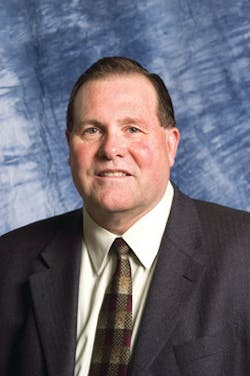Fire Politics: Fire Chiefs Confront Our Biggest Challenges
I recently conducted a survey involving fire chiefs who manage 10 metropolitan fire departments in the United States. The departments selected for the survey were literally from East Coast to West Coast, from north to south. The chiefs were each asked to respond to just two questions:
1. What do you think is the most significant challenge facing your fire department in 2013?
2. What do you think is the most significant challenge facing the fire service on a national basis in 2013?
It was a rather simple and quick survey, but I was still somewhat surprised – and very happy – when I achieved a 100% return.
As I should have expected, a theme emerged in the survey responses. It is interesting that each of the challenges identified has both political and functional elements to solutions that may be undertaken, and using either approach (political or functional) without addressing the other will most probably (negatively) impact our ability to handle them effectively.
Some of the challenges identified by chiefs as local in nature were identified as national challenges by other chiefs. As a result, the following are the primary challenges identified collectively by the survey respondents. In reality, most of them are of both local and national significance anyway. For purposes of this column, they are not listed in any order or priority.
Fire departments and the fire service
• Understanding the Affordable Health Care Act and its impact on fire service-based EMS systems. This includes the importance of positioning the fire service as a resource and an important player in healthcare reform as the act is fully implemented.
• Enhancing the effectiveness of fire service-based EMS service delivery overall and better addressing the various social services aspects of our EMS call volume.
• The need to better educate the public and policy makers about the current and future roles of the fire service in overall public safety.
• As a service, collectively addressing issues related to the image of firefighters is very important. This includes understanding the political climate and how it has motivated policy and legislative actions relating to pay, pensions and other benefits. The credibility of firefighters, fire departments and even the fire service as a whole could be at stake moving forward.
• Meeting the overall day-to-day firefighter safety, staffing, training and customer service requirements of managing a fire department in a rapidly changing governmental climate is a major issue requiring a great deal of attention.
• Considering the reality that fire chief tenure has been reduced, fire departments face the challenge of transitioning to a new fire chief more frequently than in the past, while maintaining department morale and focus at the same time. This creates political and functional challenges that can make it difficult for the organization to consistently function at a high level and for fire chiefs to implement necessary changes and maintain their employment while doing so.
• The challenges of dealing with local budgets while simultaneously being impacted by reductions in federal funding of grant programs, etc. There is concern that funding eliminated due to reduced federal expenditures could result in the expectation that local governments will simply absorb the ongoing funding of those resources or programs. This may not be practical or possible.
• Dealing with the reality of heightened (and sometimes unrealistic) expectations of fire chiefs and fire departments, both internally and externally, becomes more challenging each year.
• Embracing the realization that the labor/management relationships within a fire department can – perhaps more than ever before – dictate an organization’s ability to deliver quality service and adequately support the members who are trying to provide that service.
• The challenge for fire departments to create a different and better path forward as the economy continues its recovery. This will include realizing that political support to simply reinstate the fire department to where it was pre-recession may be lacking.
• Replacing the infrastructure needs of fire departments is of considerable concern. Since the economic downturn began, many fire departments have not been able to replace worn apparatus, equipment, facilities and communications systems. In order to save money, decisions were made to retain these long after they should have been replaced. This payment is coming due and creating an acceptable plan to recover and go forward could be challenging to fund and implement.
• Fire deaths in many large cities have declined considerably over the years and may continue to do so. A significant challenge for fire departments is communicating and selling the need for an adequate fire suppression force when data indicates that the frequency of their use is declining. We know that no matter what the frequency, an adequate fire suppression response is critical to the safety of the public and firefighters. Addressing this issue may be especially difficult for fire departments that have not embraced and integrated EMS, special operations, fire prevention and all-risk public education as regular duties of their firefighters.
It is obvious that the responses from these 10 chiefs could be of guidance to major fire service membership organizations when deciding what types of support and information to provide to their members during the next year (or more). I appreciate the input of these fire chiefs. It is helpful and seems to make some sense to me – and I hope to you as well.
Dennis Compton will present “Instilling Accountability in Fire Officers” at Firehouse Expo 2013, July 23-27 in Baltimore, MD.
DENNIS COMPTON, a Firehouse® contributing editor, is a speaker and the author of Progressive Leadership Principles, Concepts and Tools, the When in Doubt, Lead! books, the book Mental Aspects of Performance for Firefighters and Fire Officers, and many articles, chapters and other publications. He was the fire chief in Mesa, AZ, for five years and assistant fire chief in Phoenix, where he served for 27 years. Compton is past chairman of the Executive Board of the International Fire Service Training Association (IFSTA) and past chairman of the Congressional Fire Services Institute’s National Advisory Committee. He is currently chairman of the National Fallen Firefighters Foundation Board of Directors.
About the Author

Dennis Compton
Chief
DENNIS COMPTON is a well-known speaker and the author of several books, including his most recent offering titled Progressive Leadership Principles, Concepts and Tools. He also authored the three-part series of books titled When in Doubt, Lead, the book Mental Aspects of Performance for Firefighters and Fire Officers, as well as many articles, chapters and other publications. Compton was the fire chief in Mesa, AZ, for five years and an assistant fire chief in Phoenix, where he served for 27 years. He is past chairman of the Executive Board of the International Fire Service Training Association (IFSTA) and past chairman of the Congressional Fire Services Institute (CFSI) National Advisory Committee. Compton is currently the chairman of the National Fallen Firefighters Foundation (NFFF) Board of Directors and co-chairs the Fire Service-Based EMS Advocates Steering Committee.
